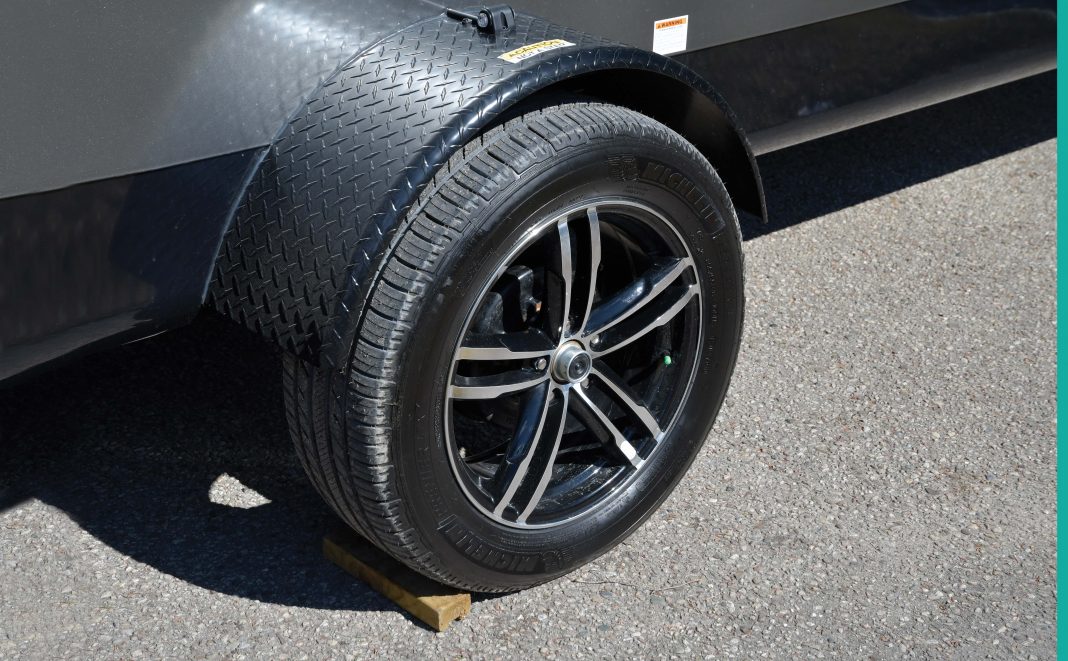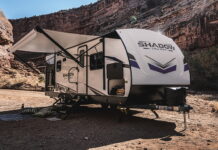Having your wheel bearings repacked is a procedure we recommend you have done every two years – even if you have EZ Lube Axles!
By Paul Charlier.

You can check your wheel bearings any time by simply observing how the wheel feels when you rotate it. To save yourself some trouble on the road this is something you should do at the beginning of every season and as a safety precaution before you take a trip.
Jack up one side of the trailer, grab the top and bottom of the tire and push and pull alternately on it, the wheel should have very little play, a trained professional can easily assess this. If there is play in the wheel, it’s a sign your bearings need a repack. This just gives you a clue though, unless you take them apart, there is no 100% sure way to tell.
When repacking bearings, they should always be cleaned with a proper bearing cleaner and wiped dry, then thoroughly inspected by looking for rough spots or pitting on the surfaces and for signs of overheating and wear. When cleaned, they should spin freely and have no rough spots.
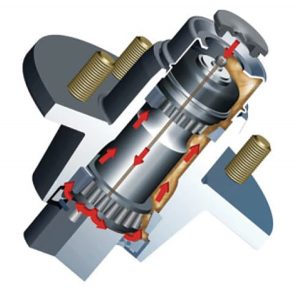 The inside of the hub will also need to be cleaned and inspected. Replacing any bearing and race that shows any signs of wear will prevent you from being stranded on the side of the road. Use a good quality grease that is rated for bearings and high heat, good quality grease won’t break down as quickly.
The inside of the hub will also need to be cleaned and inspected. Replacing any bearing and race that shows any signs of wear will prevent you from being stranded on the side of the road. Use a good quality grease that is rated for bearings and high heat, good quality grease won’t break down as quickly.
Trailer bearings are made of hardened steel and will usually last for the life of a trailer as long as they are properly maintained.
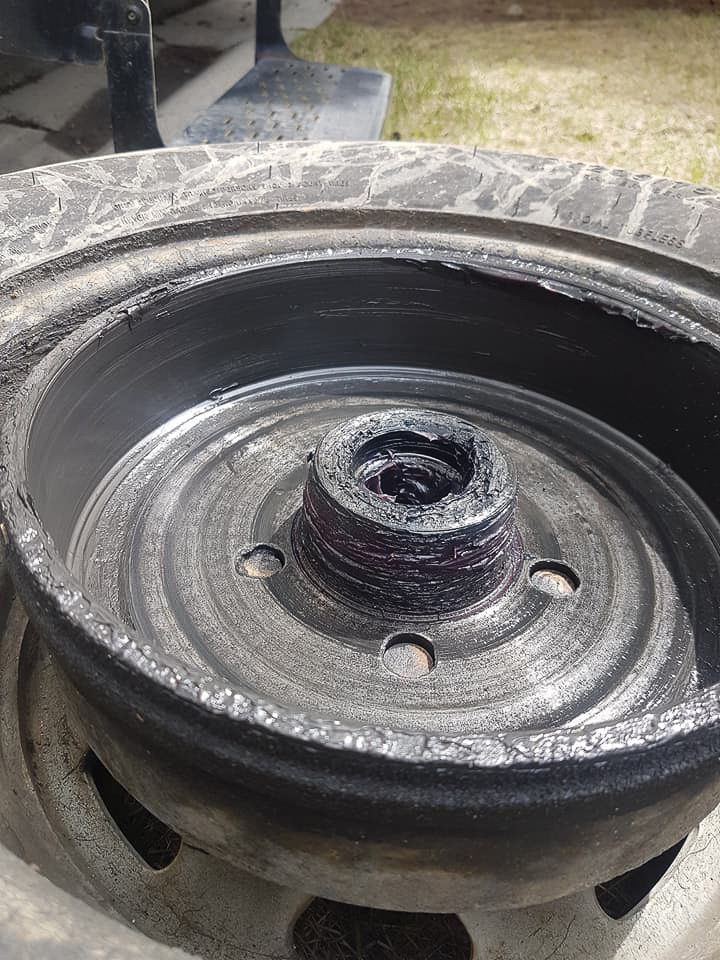 The most important aspect of bearing maintenance is to keep them well encased in fresh axle grease. Axle grease prevents metal-to-metal contact, absorbing the heat from friction caused by the spinning bearings and prevents moisture from getting in the bearings.
The most important aspect of bearing maintenance is to keep them well encased in fresh axle grease. Axle grease prevents metal-to-metal contact, absorbing the heat from friction caused by the spinning bearings and prevents moisture from getting in the bearings.
Since bearings are made of hardened steel, they can rust very quickly, it can be as fast as overnight if exposed to moisture. This is why you shouldn’t store your RV for long periods of times on grassy areas. The steel can be like a magnet drawing in the moisture and causing damage. Avoid storage yards that are not gravelled, as they can be a poor choice for your bearings.
“But I have EZ Lube axles and my salesman told me I don’t need to get my bearings repacked,” you might be saying to yourself. “Just put a grease gun on the nipple and give them some shots and you’re done! …Right?”
Well, it would be a wonderful thing if that was the case but no, even the manufacturer of the EZ Lube axles recommends having your hubs removed once a year for inspection. My opinion, shared by a lot of journeyman RV technicians, is if you have to go through all that trouble then you may as well have them properly repacked.
Let me show you what many technicians find every day from owners of EZ Lube axles.
Saturated hubs and backing plates, that’s what! When this happens, you cannot clean it off, they are ruined. The grease has absorbed into the pads and into the pores of the steel hubs and they must be replaced, costing you more than double the amount of a basic bearing repack.
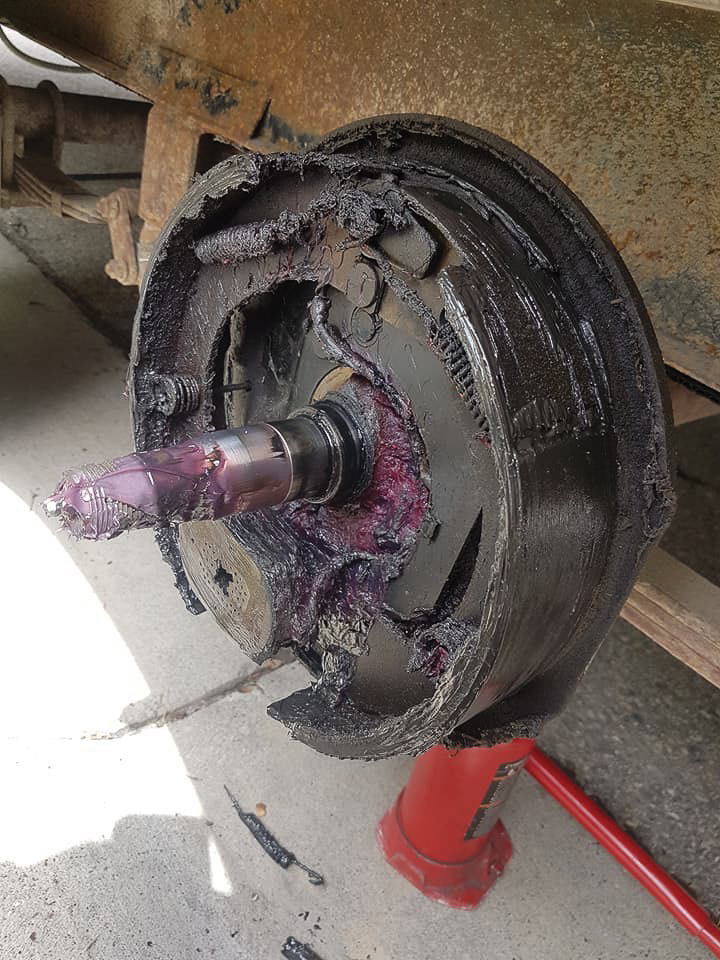
The problem is when you push new grease in, you have no way of telling where all the old grease is going. It is supposed to come out the front where the packing nut is, but the old grease that’s already there is usually hardened. The grease inside the bearing gravity is usually black and runny so once it’s filled, it blows out the rear seal and what you see in the picture is what we see happening more and more.
You may think you’re doing the right thing with what appears to be such an easy maintenance procedure, but you may be forgetting to check the condition of the bearings, races, seals and brake hardware.
Only by having a certified technician professionally repack your bearings can you be certain they have been cleaned and properly inspected and assembled correctly.



















